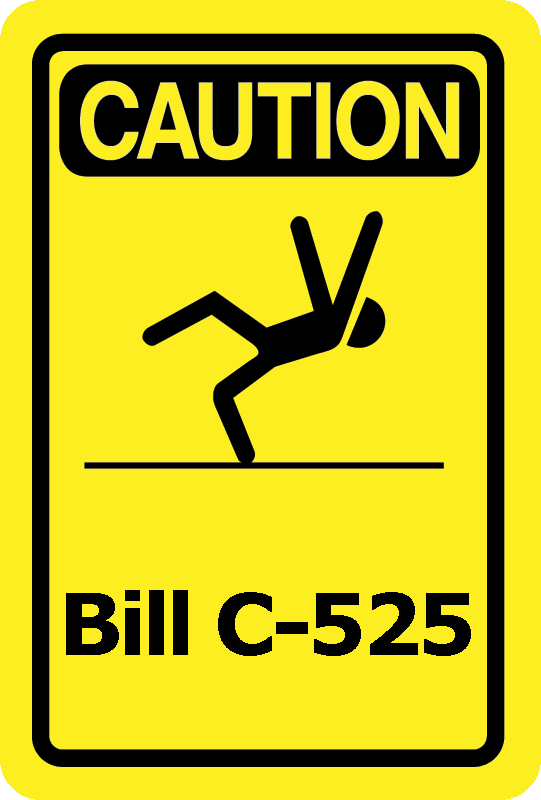MPs To Rewrite Union Code
 Labour leaders are bracing for final Commons debate on a Canada Labour Code bill that would see unions decertified on the votes of 40 percent of members. MPs are expected to give Third Reading to the private Conservative bill endorsed by the labour department.
Labour leaders are bracing for final Commons debate on a Canada Labour Code bill that would see unions decertified on the votes of 40 percent of members. MPs are expected to give Third Reading to the private Conservative bill endorsed by the labour department.
"They really have misjudged where Canadians are at with respect to trade union rights," said Fred Wilson, Unifor director of strategic planning.
Bill C-525 An Act To Amend The Canada Labour Code seeks to replace the current federal system of certifying new unions by a majority of signatures on membership cards. Union locals would be certified or disbanded on 40% of votes cast by secret ballot.
MPs in committee agreed to strike out a provision of the bill that required organizers of a certification drive to obtain 40% support of all members of a workforce, not merely 40% of ballots cast. The chair of the Canada Industrial Relations Board described the original proposal as "perverse".
"It's a huge improvement and we consider it a victory of a kind that the government pulled back from the extreme position it was taking," Wilson said. "It was fundamentally an anti-labour decertification bill."
The Canadian Labour Congress said the legislation remained flawed, predicting it will make it easier for employers in federally-regulated industries like broadcasting, banking, airlines and other sectors to interfere in union drives.
"There are enormous problems with the bill," said Hassan Yussuff, Congress secretary-treasurer; "If the government chose to make changes to the Labour Code there should be broad consultations with both employers and unions, and it should be at the government's behest. The Labour Code is a very delicate balance on which the government, employers and unions have compromised. When you allow a private Member's bill as a very blunt instrument to make changes to legislation, it doesn't take into consideration the enormous compromises that have been made."
The bill's sponsor, MP Blaine Calkins of Wetaskiwin, Alta., has said his legislation was prompted by complaints from unidentified constituents of union intimidation. However the Industrial Relations Board reported of 4629 decisions issued in the last ten years just six upheld complaints of intimidation - four by employers, and two by rival unions competing to organize the same workplace.
Federally-regulated industries are among the most unionized in the county with 4 in 10 workers belonging to a bargaining group, compared to a national average of 1.7 in 10, by official estimate.
By Dale Smith – Canadian Parliamentary Press Gallery
